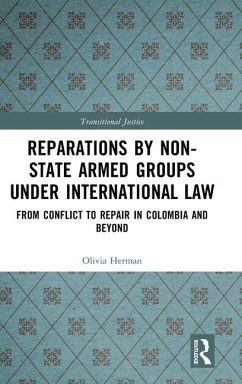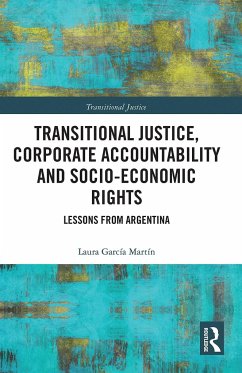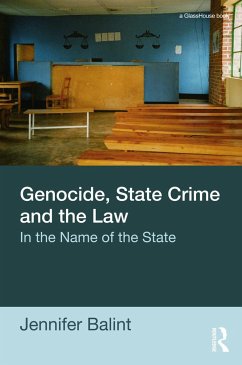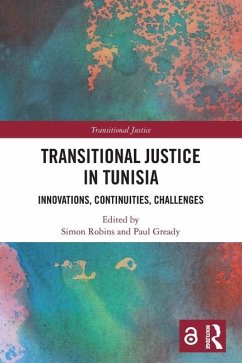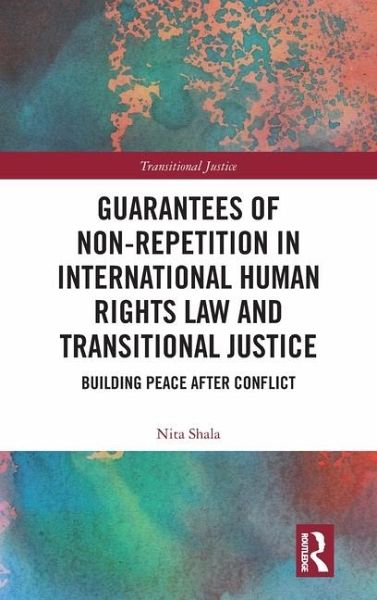
Guarantees of Non-Repetition in International Human Rights Law and Transitional Justice
Building Peace after Conflict
Versandkostenfrei!
Versandfertig in 6-10 Tagen
144,99 €
inkl. MwSt.
Weitere Ausgaben:

PAYBACK Punkte
72 °P sammeln!
This book examines the understudied, yet increasingly applied, concept of Guarantees of Non-Repetition under international human rights law and transitional justice.Guarantees of Non-Repetition (GNRs) are measures taken to ensure that human rights abuses do not recur. They are especially crucial in post-war contexts marked by severe and systematic violations. However, although they are increasingly invoked, GNRs are not well understood, and they have so far received only limited theoretical and practical analysis. Tracing their development to the influence of international human rights law, th...
This book examines the understudied, yet increasingly applied, concept of Guarantees of Non-Repetition under international human rights law and transitional justice.
Guarantees of Non-Repetition (GNRs) are measures taken to ensure that human rights abuses do not recur. They are especially crucial in post-war contexts marked by severe and systematic violations. However, although they are increasingly invoked, GNRs are not well understood, and they have so far received only limited theoretical and practical analysis. Tracing their development to the influence of international human rights law, this book considers what GNRs are, how and why they have come about, and how GNRs are implemented. Through an explication of the history, law and jurisprudence of GNR's - in regional mechanisms in Latin America, Europe, and Asia, as well as in international bodies - the book maintains the increasing importance, and as yet unfulfilled potential, of this legal obligation in transitional justice settings.
This first book to analyse the development of GNRs and their application will appeal to scholars in the areas of law and transitional justice, public policy, and socio-legal studies, as well as lawyers and policy-makers working in post-conflict situations.
Guarantees of Non-Repetition (GNRs) are measures taken to ensure that human rights abuses do not recur. They are especially crucial in post-war contexts marked by severe and systematic violations. However, although they are increasingly invoked, GNRs are not well understood, and they have so far received only limited theoretical and practical analysis. Tracing their development to the influence of international human rights law, this book considers what GNRs are, how and why they have come about, and how GNRs are implemented. Through an explication of the history, law and jurisprudence of GNR's - in regional mechanisms in Latin America, Europe, and Asia, as well as in international bodies - the book maintains the increasing importance, and as yet unfulfilled potential, of this legal obligation in transitional justice settings.
This first book to analyse the development of GNRs and their application will appeal to scholars in the areas of law and transitional justice, public policy, and socio-legal studies, as well as lawyers and policy-makers working in post-conflict situations.




